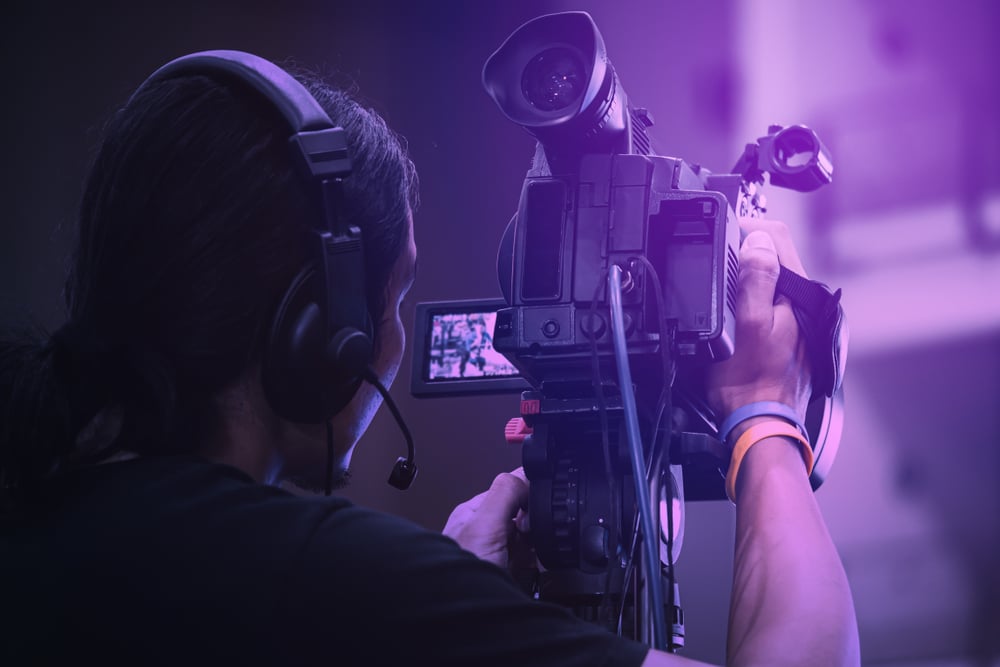

During depositions, witnesses provide testimony and are cross-examined during the discovery phase before a case goes to trial. In a video deposition, an audiovisual recording is part of the official record, alongside a transcript produced by a professional court reporter who captures all spoken words in text.
While depositions are structured as part of the research leading to the big event—the trial—in reality, they’re the one-and-only incidence of testimony for most witnesses. According to a study by the American Judges Association, 97% of civil cases end outside of the courtroom, either in dismissal, abandonment, or most commonly, settlement. (1)
With the accessibility of recording technology and the import of depositions, video recording is a wise choice—so let’s look at the video deposition rules you need to be aware of.
In the United States, civil cases in federal district courts operate under the Federal Rules of Civil Procedure. There are two rules specific to depositions and their use in court:
Rule 30 covers how depositions are scheduled and taken. Regulations specific to video depositions include:
To be used as an official record of the proceeding, the court reporter in attendance must:
Additionally, Rule 30 states that the “deponent’s and attorneys’ appearance or demeanor must not be distorted through recording techniques”—so no filters, Photoshopping, or other alteration of the original.
While most civil cases end in negotiated settlements, those that make it to court look to Rule 32 for how depositions are introduced and used at trial. Specific to video depositions, note:

Each state follows its own court procedural rules, with 35 having adopted the use of the Federal Rules of Civil Procedure either wholly or with very minimal alteration. (4) The 15 remaining states may have additional regulations that apply more specific guidelines, such as the notification and use of video depositions.
For instance, the California State Bar requires deposing attorneys to state whether they reserve the right to present the recording at trial in the original notice of deposition. (5)
In short—no, not effectively. If a witness, expert witness, or client simply dislikes being videotaped, it doesn’t outweigh the usefulness of a video recording in the eyes of the legal system. A video recording of a deposition is considered the right of any party to a lawsuit.
However, if the deposition notice didn’t indicate that the proceeding would be recorded, then the deposing attorney did not comply with federal Rule 30 (which states they must indicate recording method in the notice of deposition). (2)
In this case, if a videographer shows up, the deponent or their attorney may refuse to allow the recording. If the deposing attorney pushes back, the objecting party can move to terminate the proceeding on the grounds that it’s being conducted in bad faith under Rule 30(d)(3). (2)
Remote depositions are common these days but still fall under the rules of in-person legal proceedings—you can’t simply click the “record” button on a video conference.
Essentially, a video conference is a remote deposition, but a video deposition is when a legal videographer captures a professional recording of the proceeding. These videos can be done for both remote or in-person depositions.
Video depositions are useful, common, and allowable under state and Federal Rules of Civil Procedure. There are specific guidelines on how the recording must begin and end, the on-camera swearing-in of the deponent, and providing advance notice that videography will be employed.
Be sure you’re familiar with any specific regulations in your state and know your rights when the opposing counsel deposes your client or witness.
Looking for more information or help in scheduling or preparing for a video deposition?
U.S. Legal Support is an established, nationwide provider serving lawyers and law firms of all types and sizes. We connect you to a network of 5,000+ court reporters and also offer record retrieval, interpreting and translation services, and litigation consulting.
Reach out today to discuss your video deposition and other legal support services.
Sources:

Julie Feller is the Vice President of Marketing at U.S. Legal Support where she leads innovative marketing initiatives. With a proven track record in the legal industry, Juie previously served at Abacus Data Systems (now Caret Legal) where she played a pivotal role in providing cutting-edge technology platforms and services to legal professionals nationwide.
![]()
Content published on the U.S. Legal Support blog is reviewed by professionals in the legal and litigation support services field to help ensure accurate information. The information provided in this blog is for informational purposes only and should not be construed as legal advice for attorneys or clients.